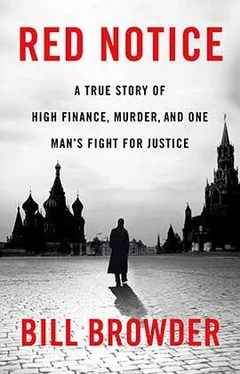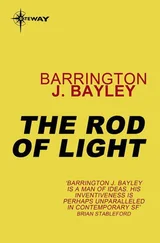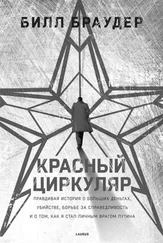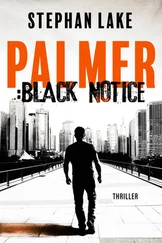This meant that in addition to punishing American families who were waiting for Russian children to join them, Putin was also punishing, and potentially killing, defenseless orphans in his own country. To say that this was a heartless proposal doesn’t even qualify as an understatement. It was evil, pure and simple.
Putin had hit his mark. He’d found something that Americans wanted and that he could take away without any threat of retaliation. More than that, he’d found a way to create a moral cost for supporting the Magnitsky campaign.
While Putin expected a bad reaction from the United States, he had no idea what kind of hornet’s nest he’d stirred up in his own country. One can criticize Russians for many things, but their love of children isn’t one of them. Russia is one of the only countries in the world where you can take a screaming child into a fancy restaurant and no one will give you a second look. Russians simply adore children.
This didn’t stop Putin, though. The adoption ban law was given its first reading in the Russian Parliament on December 14, the same day that President Obama signed the Magnitsky Act into law.
The initial blowback inside Russia came from the most unexpected quarter. After the law was proposed, some of Putin’s most senior confidants started to break ranks. The first was Olga Golodets, the deputy prime minister for social issues, who told Forbes that if this law was passed, «children with serious illnesses who require expensive operations will lose the opportunity to be adopted». Then Anton Siluyanov, Russia’s finance minister, tweeted, «Logic of tit for tat is wrong because children will suffer». Even Sergei Lavrov, Russia’s foreign minister, who carried out some of Putin’s most odious policies around the world, said, «It is not right, and I am sure that eventually the Duma will make a balanced decision».
Because Putin ran such a tight ship, given this unprecedented display of dissent I started to assume that he must not be behind the adoption ban himself. I hoped and prayed that was true and that cooler heads would prevail. Defenseless children had to be taken out of this fight.
Putin rarely projects his intentions and is one of the most enigmatic leaders in the world. Unpredictability is his modus operandi. While he does this to keep his options open, he also never backs down from a fight or shows any weakness. Therefore, it was impossible to predict what he was going to do, but we were about to get a clearer view when Putin took the podium for his annual four-hour press conference on December 20, 2012.
This stage-managed production had animated backdrops and banks of lights, and many of the questions were softballs lobbed from either state-sponsored or self-censored journalists. Even though unexpected things rarely happened at these events, I knew that this would be the first time Putin would show his cards on the adoption ban.
I watched it on a live feed at the office. Vadim and Ivan joined me to see what Putin had to say and to translate. The first question came from Ksenia Sokolova, a journalist from a Russian glossy magazine named Snob : «In response to the American Magnitsky Act, the State Duma adopted restrictive measures against US citizens who want to adopt Russian orphans… Does it not bother you to have the most destitute and helpless orphans becoming a tool in this political struggle?»
Putin shifted at his huge, angular desk and deflected as well as he could. He tried to look cool, but right off the bat the event had gone off script. «This is undoubtedly an unfriendly act towards the Russian Federation», he said. «Public opinion polls show that the overwhelming majority of Russians do not support the adoption of Russian children by foreign nationals». He then went into a long ramble about Guantánamo, Abu Ghraib, and secret CIA prisons, as if America’s faults somehow made Russia’s own abhorrent actions acceptable.
Three hours into the press conference, six of the fifty-odd questions asked of Putin had been about Sergei Magnitsky and the Russian orphans, and he was visibly angry.
Finally, toward the end of the event, Sergei Loiko of the Los Angeles Times stood up and said, «I’m going back to Sergei Magnitsky because you talked about it. Russia has had three years to give an answer» — he was referring to the investigation of Sergei’s death — «what happened? What about the stolen two hundred and thirty million dollars that went to the police? That money could have been used to rebuild orphanages».
The hall erupted in applause. Putin was stunned. «Why are you all clapping?» he demanded. Putin had never experienced anything like this — the press was in open revolt. Everyone thought these things, but no one ever said them. Putin finally lost control. He lowered his voice, furrowed his brow, and said, «Magnitsky did not die of torture — he was not tortured. He died of a heart attack. In addition, as you know, he was not a human rights activist but a lawyer for Mr. Browder, who is suspected by our law enforcement agencies of economic crimes in Russia».
My heart skipped a beat. I knew that when my name passed Putin’s thin lips, my life had changed forever. In the past, Putin had always steadfastly refused to mention my name. He’d been publicly confronted twice by reporters and always referred to me as «that man». He never dignified his enemies by mentioning them by name. But no longer. Hearing Putin say my name had a chilling effect, and I braced myself for whatever was going to come next.
The very next day, the adoption ban was voted on in the Duma, and in spite of Lavrov’s wish that it make a «balanced decision», 420 members voted for it and only 7 voted against. A week later, on December 28, Putin signed the adoption ban into law. The Magnitsky Act had taken two and half years to become law in the United States; Russia’s anti — Magnitsky Act took two and a half weeks.
The immediate fallout over this new law was heartbreaking. Three hundred Russian orphans who had already met their American families would never see the rooms that had been decorated for them on the other side of the world. Pictures of these children and their stories circulated throughout the international press. Their prospective parents descended on Capitol Hill, shouting, «We don’t care about international politics, we just care about our babies!» I couldn’t have agreed with them more.
As soon as the adoption ban went into effect, I started receiving calls from reporters, and all of them had the same question: «Do you feel responsible for what’s happening to these orphans and their American families?»
I answered, «No, Putin is the one who is responsible. Only a coward would use defenseless children as human shields».
I wasn’t the only one who felt this way. On January 14, Russian New Year’s Day, people started to assemble on Moscow’s Boulevard Ring carrying placards and homemade signs denouncing Putin. As the protesters made their way along the streets among a heavy police presence, their numbers grew and eventually hit roughly fifty thousand. This was not the usual crowd of politically active people, but instead included grandmothers, schoolteachers, children riding on their fathers’ shoulders, and every other kind of Muscovite. Their signs said things like SHAME! and STOP LYING! and THE DUMA EATS CHILDREN! and HEROD! (The law quickly became known as Herod’s Law, which referred to the brutal king of Judea who, to stay in power, had tried to kill the baby Jesus by ordering the massacre of all male infants in Bethlehem).
Putin generally ignores protests, but he couldn’t ignore this one, because it was big and it focused on saving children. The government couldn’t repeal the law, but after the «March Against Scoundrels» it announced that Russia would invest millions in the state-run orphanage system. I was sure that the money would never find its way to its designated recipients, but it did show how rattled Putin was.
Читать дальше












